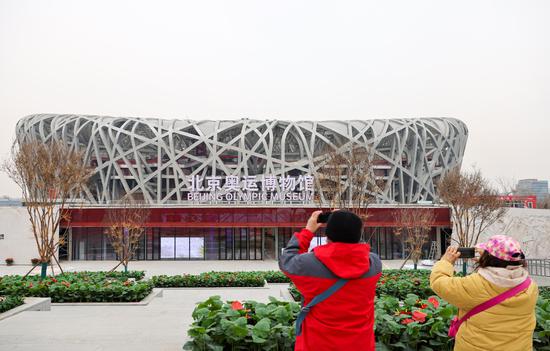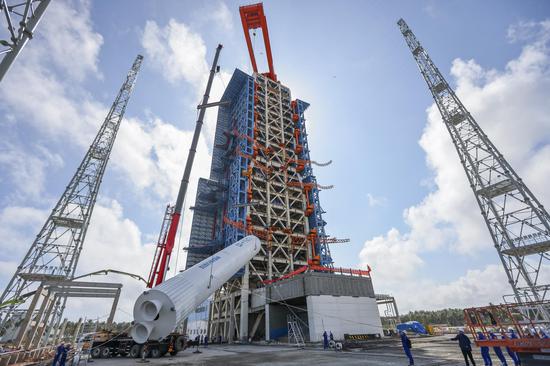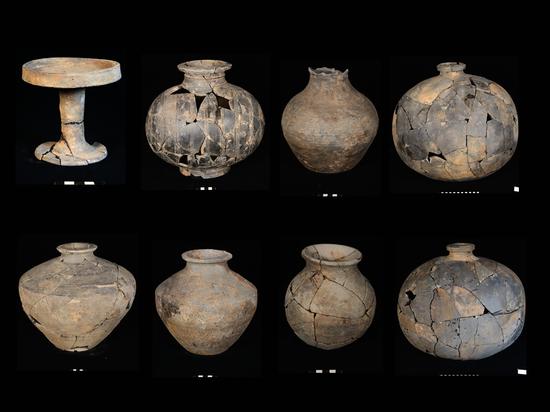Lack of investor confidence continues to affect the performance of the subdued A-share market, with industry experts calling for stronger policies to seize the right time window to inject more liquidity into the market and buoy overall sentiment.
After rattling investors by sinking below the 2,640-point mark during the early hours of trading on Monday, the benchmark Shanghai Composite Index managed to climb back to 2,702.19 points at the end of the trading day, shedding 1.02 percent in the process. The Shenzhen Component Index dropped 1.13 percent, while the technology-focused ChiNext in Shenzhen managed to stage a V-shaped comeback by closing 0.79 percent higher.
Xue Yi, a professor of finance at the University of International Business and Economics, said: "Amid elevated uncertainties on multiple fronts, the risk appetite of investors has declined sharply and triggered a revaluation of stocks, a process that has been reinforced by panic selling and a liquidity crisis, leading to the current market slump."
"Taking substantial measures to stabilize the market is warranted at this juncture," Xue said, adding that this would enhance the income expectations of the middle-income group, thereby boosting consumer spending and revitalizing the economy.
China Securities Regulatory Commission said at a meeting on Sunday that it will make greater efforts to stabilize market performance, expectations and confidence and resolutely prevent abnormal market volatility.
Apart from accelerating efforts to help resolve A-share companies' difficulties and increase support for high-quality companies, the country's top securities watchdog vowed to severely crack down on illegal acts such as market manipulation, short-selling, insider trading and fraudulent issuance of shares.
The commission will encourage institutions to increase countercyclical investments, introduce more mid-to long-term capital into the market and respond to investors' concerns in a timely manner, it said on Sunday.
Commenting on share pledges, which investors have expressed much concern about, the commission said on Monday that pledges accounted for 3.38 percent of the total market value of the Shanghai and Shenzhen bourses, down from the peak of 10.51 percent in 2018. The size of share pledges had actually fallen compared with the end of last year.
A pledge of stock occurs when companies use shares as collateral and takes loans against them.
Analysts from Huaxi Securities said that the recent collective redemption of mutual fund products by investors due to their decreasing net value has further dragged down the indexes. With Spring Festival approaching, investors may become more conservative as they would want to hold cash to avoid external volatility when the A-share market suspends trading for the holiday.
Meanwhile, the 0.5-percentage-point reserve requirement ratio cut took effect on Monday, providing 1 trillion yuan ($140.76 billion) of long-term liquidity, according to China's central bank.
Experts at Founder Securities said that there is a structural liquidity deficiency in the A-share market. Institutions have poured much money into market heavyweights to stabilize the indexes, resulting in inadequate liquidity for small-cap stocks. Derivatives using high leverages have also contributed to the structural liquidity shortage. As the US Federal Reserve's rate cuts may not happen anytime soon, capital inflow into the A-share market has also become hesitant.
But the problem that needs immediate attention is the lack of investor confidence. According to experts, this has resulted in the recent slide in the A-share market, and does not truly reflect China's economic fundamentals.
The Caixin China General Service PMI stood at 52.7 in January, marking the 13th straight month of expansion in services activity.
There should be a combination of supportive policies released by different government departments to restore market confidence, which is the A-share's endogenous driving force and the biggest variable at present, said experts at Founder Securities.
Qin Peijing, chief strategist at CITIC Securities, said the recent A-share market adjustments have not much to do with China's economic fundamentals or geopolitical tensions.
But February is crucial to end the negative impact of collective redemption of mutual fund products. Strong external interventions or policies which are able to reverse expectations are needed to restore market confidence, said Qin.
Agreeing that the much-anticipated stabilization fund can act as a last resort against irrational market downturns, Xue from the University of International Business and Economics said the authorities can also consider facilitating a large-scale collective stock purchase by major institutional investors, including mutual fund companies.
He added that the collective purchase, if necessary, could even adopt leveraged positions — utilize borrowed money for investment — and potentially inject liquidity worth trillions of yuan into the A-share market and help significantly mitigate the liquidity stress.


















































 京公网安备 11010202009201号
京公网安备 11010202009201号